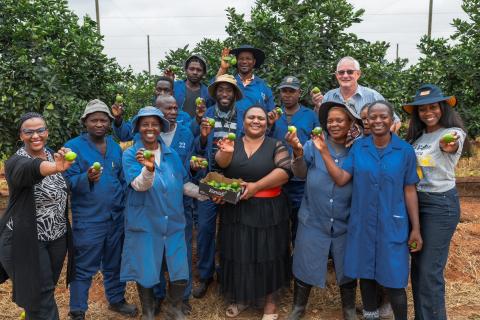
The South African economy- much like the global economy, has entered into a period of persistently high inflation and weaker economic growth. Producer price increases continue to pass-through to wages and consumer prices, placing immense strain on households and businesses likewise .
Furthermore, the South African government is battling a challenging macroeconomic environment, making its ability to raise tax revenue even more challenging as it contends with a fading commodity boom, pressure on other economic sectors, a weak labour market, higher interest rates and ongoing power supply constraints.
As we stagger through the last quarter of the year, more of our attention has shifted towards what the future holds, and the tabling of the Medium-Term Budget Policy Statement (MTBPS) will begin to show this for the country, through three-year projections for inflation, economic growth, unemployment, and balance of trade. These projections will set the groundwork for the next national budget.
Not in the very least, part of that discussion will lead us to a conversation around revenue performance and the tax outlook of the country. Talks around strong and sustained economic growth, coupled with greater efficiency in revenue collection, and the need to raise the tax-to-GDP ratio over the medium term, are more than likely to form part of that picture.
Part of enabling strong economic growth would be to create enough tax predictability for businesses to invest and plan effectively into the future. Nowhere has this been more of a necessity than in an excise tax adjustment that has had a long-standing history of being above inflation and unpredictable- although the guidelines set out in the excise policy are clear and transparent as to how the adjustment should take place.
Currently the scope of the MTBPS is limited to providing the macroeconomic and fiscal outlook of the country and possible revisions to the expenditure framework. Unlike the national budget, the medium-term budget is not expected to propose major taxes changes or allow for any tax proposals to be tabled. This is a missed opportunity in the legislative framework of the MTBPS, by not allowing for the medium-term outlook to include tax proposals. The fixing of the excise adjustment, in line with (forecasted) inflation in the medium-term budget would solve for its unpredictable nature. The excise adjustment is in need of a consistent application given its (historical) large variability away from inflation. Nowhere will this certainty be more critical than in a year where cost-push inflation has been difficult for businesses to manage.
On matters related to the efficiencies of tax collection, the excise policy framework falls short of preventing tax leakages by its limited design. In the four-year period between 2018 to 2021, a review of national government tax collection data suggests that the South African fiscus lost approximately R12 billion in excise revenue, as a result of the decision to not tax all alcohol categories on an alcohol-content based excise system.
Currently, it is only beer and spirits that are taxed on an alcohol-based system, leaving wine on a per litre system. Not only has National Treasury missed an opportunity to streamline the excise system, but more importantly, they have lost a revenue-raising opportunity by not creating consistency in the way in which excise is levied across alcohol categories.
Enshrined in South Africa’s legislation on the Fiscal Framework and the Money Bills is the opportunity for the public and tax stakeholders in particular to participate in the budget cycle through a well-established consultative process. As the South African Breweries we continue to prioritise making rigorous inputs into this process with the hope that improvements may happen in the effectiveness and efficiency of the excise tax system.
So, what could be said about a fiscus that has more expenditure commitments than it does revenue? It certainly could do with an additional R12 billion by taxing all alcohol categories on the same alcohol content basis, and could easily create the tax certainty needed by keeping the excise adjustment in line with inflation into the medium-term, to allow for the South Africa economy to benefit from the economic multipliers attached to investments. There indeed seems to be nothing to lose, but more (revenue and investments) to gain, as we look forward to the MTBPS.



